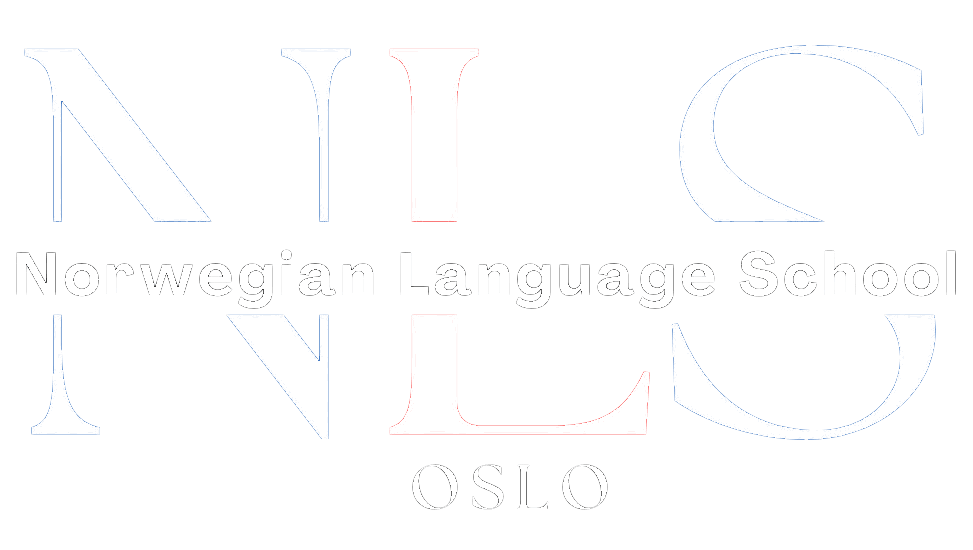

Norwegian in Action: 10 Verbs That Will Sharpen Your Speaking Skills
Norwegian is a North Germanic language spoken primarily in Norway. It is closely related to Danish and Swedish, and together they form the Scandinavian language family. Norwegian is the official language of Norway and is spoken by approximately 5 million people worldwide.
Learning Norwegian can be a rewarding experience for several reasons. Firstly, it allows you to communicate with the local population when visiting or living in Norway. This can greatly enhance your travel experience and make it easier to navigate through daily life. Secondly, learning Norwegian opens up opportunities for work and study in Norway. Many companies and universities require proficiency in the Norwegian language, so having this skill can give you a competitive edge. Lastly, learning Norwegian can also help you understand and appreciate Norwegian culture, literature, and history on a deeper level.
Table of Contents
ToggleKey Takeaways
- Norwegian language is important for communication and cultural understanding in Norway and other Scandinavian countries.
- Verbs are crucial in Norwegian language as they convey the action and tense of a sentence.
- Learning the top 10 verbs in Norwegian can greatly enhance your speaking skills.
- Conjugation of Norwegian verbs depends on the tense, subject, and number of the sentence.
- Using Norwegian verbs in present, past, and future tense requires different conjugation rules and endings.
- Common phrases and idioms using the top 10 verbs can help you sound more natural and fluent in Norwegian.
- Practicing and memorizing Norwegian verbs can be done through repetition, context, and immersion.
- Improving your Norwegian speaking skills requires consistent practice and exposure to the language.
- Learning Norwegian verbs is a crucial step towards fluency and proficiency in the language.
- Next steps for improving your Norwegian speaking skills include practicing with native speakers, watching Norwegian media, and immersing yourself in the language.
The importance of verbs in Norwegian language
Verbs play a crucial role in the Norwegian language. They are the words that express actions, states, or occurrences. Without verbs, it would be impossible to construct meaningful sentences in Norwegian. Verbs also determine the sentence structure in Norwegian.
In Norwegian, verbs are conjugated to match the subject of the sentence. This means that the verb changes depending on whether the subject is singular or plural, and whether it is in the first, second, or third person. Additionally, verbs in Norwegian can also change depending on the tense (past, present, future) and mood (indicative, imperative, subjunctive).
Top 10 verbs that will enhance your Norwegian speaking skills
To improve your Norwegian speaking skills, it is important to focus on learning and practicing the most commonly used verbs in the language. Here are the top 10 verbs that will enhance your Norwegian speaking skills:
1. å være (to be) – This verb is used to express existence, identity, or characteristics of a person or thing.
2. å ha (to have) – This verb is used to express possession or ownership.
3. å gjøre (to do) – This verb is used to express actions or activities.
4. å si (to say) – This verb is used to express speech or communication.
5. å se (to see) – This verb is used to express visual perception.
6. å komme (to come) – This verb is used to express movement towards a location.
7. å gå (to go) – This verb is used to express movement away from a location.
8. å vite (to know) – This verb is used to express knowledge or awareness.
9. å kunne (to be able to) – This verb is used to express ability or possibility.
10. å ta (to take) – This verb is used to express the act of taking or grabbing something.
Understanding the conjugation of Norwegian verbs
In Norwegian, verbs are conjugated to match the subject of the sentence and indicate tense, mood, and voice. There are several verb tenses in Norwegian, including present, past, and future. Each tense has its own set of conjugation rules.
To conjugate a verb in Norwegian, you need to know the infinitive form of the verb and the subject pronouns. The infinitive form of a verb is the base form without any conjugation. For example, the infinitive form of the verb “å være” (to be) is “være.”
To conjugate a verb in the present tense, you simply add the appropriate ending to the infinitive form of the verb. For example, in the present tense, “jeg er” means “I am,” “du er” means “you are,” and “vi er” means “we are.”
Using Norwegian verbs in present tense
The present tense in Norwegian is used to describe actions or states that are happening now or are generally true. To use verbs in the present tense, you need to conjugate them according to the subject of the sentence.
For example, if you want to say “I am eating,” you would say “jeg spiser” in Norwegian. Here, “jeg” is the subject pronoun for “I,” and “spiser” is the conjugated form of the verb “å spise” (to eat) in the present tense.
Similarly, if you want to say “you are reading,” you would say “du leser” in Norwegian. Here, “du” is the subject pronoun for “you,” and “leser” is the conjugated form of the verb “å lese” (to read) in the present tense.
Using Norwegian verbs in past tense

The past tense in Norwegian is used to describe actions or states that have already happened. To use verbs in the past tense, you need to conjugate them according to the subject of the sentence.
For example, if you want to say “I ate,” you would say “jeg spiste” in Norwegian. Here, “jeg” is the subject pronoun for “I,” and “spiste” is the conjugated form of the verb “å spise” (to eat) in the past tense.
Similarly, if you want to say “you read,” you would say “du leste” in Norwegian. Here, “du” is the subject pronoun for “you,” and “leste” is the conjugated form of the verb “å lese” (to read) in the past tense.
Using Norwegian verbs in future tense
The future tense in Norwegian is used to describe actions or states that will happen in the future. To use verbs in the future tense, you need to conjugate them according to the subject of the sentence.
For example, if you want to say “I will eat,” you would say “jeg skal spise” in Norwegian. Here, “jeg” is the subject pronoun for “I,” and “skal spise” is the conjugated form of the verb “å spise” (to eat) in the future tense.
Similarly, if you want to say “you will read,” you would say “du skal lese” in Norwegian. Here, “du” is the subject pronoun for “you,” and “skal lese” is the conjugated form of the verb “å lese” (to read) in the future tense.
Common phrases and idioms using the 10 verbs
Learning common phrases and idioms that use the top 10 verbs can greatly enhance your Norwegian speaking skills. Here are some examples:
1. å være (to be) – “Jeg er sulten” (I am hungry)
2. å ha (to have) – “Jeg har en bok” (I have a book)
3. å gjøre (to do) – “Hva gjør du?” (What are you doing?)
4. å si (to say) – “Han sa ingenting” (He didn’t say anything)
5. å se (to see) – “Jeg ser deg” (I see you)
6. å komme (to come) – “Kom hit!” (Come here!)
7. å gå (to go) – “Vi går på kino i kveld” (We are going to the movies tonight)
8. å vite (to know) – “Jeg vet ikke svaret” (I don’t know the answer)
9. å kunne (to be able to) – “Kan du hjelpe meg?” (Can you help me?)
10. å ta (to take) – “Ta med deg paraplyen” (Take your umbrella with you)
Tips and tricks for practicing and memorizing Norwegian verbs
Practicing and memorizing Norwegian verbs can be challenging, but with the right strategies, it can become easier. Here are some tips and tricks:
1. Create flashcards: Write the infinitive form of the verb on one side of the flashcard and the conjugated forms on the other side. Practice flipping through the flashcards and testing yourself on the conjugations.
2. Use online resources: There are many websites and apps available that provide exercises and quizzes to practice verb conjugations. Take advantage of these resources to reinforce your learning.
3. Practice with a language partner: Find a native Norwegian speaker or someone learning Norwegian and practice conjugating verbs together. This will give you an opportunity to practice speaking and listening skills.
4. Use verbs in context: Instead of just memorizing verb conjugations, try using them in sentences or conversations. This will help you understand how verbs are used in different contexts.
5. Review regularly: Set aside dedicated time each week to review and practice verb conjugations. Consistency is key when it comes to language learning.
Conclusion and next steps for improving your Norwegian speaking skills
In conclusion, learning Norwegian and mastering its verbs can greatly enhance your speaking skills in the language. Verbs are essential for constructing meaningful sentences and determining sentence structure in Norwegian. By focusing on the top 10 most commonly used verbs, understanding their conjugation in different tenses, and practicing their usage, you can improve your Norwegian speaking skills.
To further improve your Norwegian speaking skills, consider immersing yourself in the language by watching movies or TV shows in Norwegian, reading books or articles in Norwegian, or even traveling to Norway to practice speaking with native speakers. The more you expose yourself to the language, the more comfortable and fluent you will become. So, take the first step and start learning Norwegian verbs today!
If you’re looking to expand your Norwegian speaking skills, you might also be interested in our article on “Norwegian Vocabulary for School and Education.” This article provides essential vocabulary and phrases related to education in Norway, helping you navigate the school system and communicate effectively in academic settings. Check it out here.

Norwegian A1-A2
Course Overview The Norwegian A1-A2 course is an online program focused on teaching essential Norwegian grammar and vocabulary. It includes a variety of materials and topics, with opportunities to interact with a Norwegian teacher entirely online. Curriculum Highlights The course covers key areas such as grammar and vocabulary and topics such as family, daily life, education, work, traditions, and leisure activities. Who Should Enroll? This course is perfect for beginners or those at the A1 or A2 levels who want to improve their Norwegian skills. What You Get Access to the full Norwegian A1-A2 course. A monthly 1-hour online conversation with a teacher. Many written and oral assignments. Comprehensive information on Norwegian grammar, Norwegian vocabulary and how to use them, important sentence structures, etc. Tips on additional resources to further enhance your Norwegian learning.
0 students enrolled
Last updated Dec 10th, 2024
If you want to learn Norwegian, you can register for classes here. We look forward to hearing from you and helping you become fluent in Norwegian.






